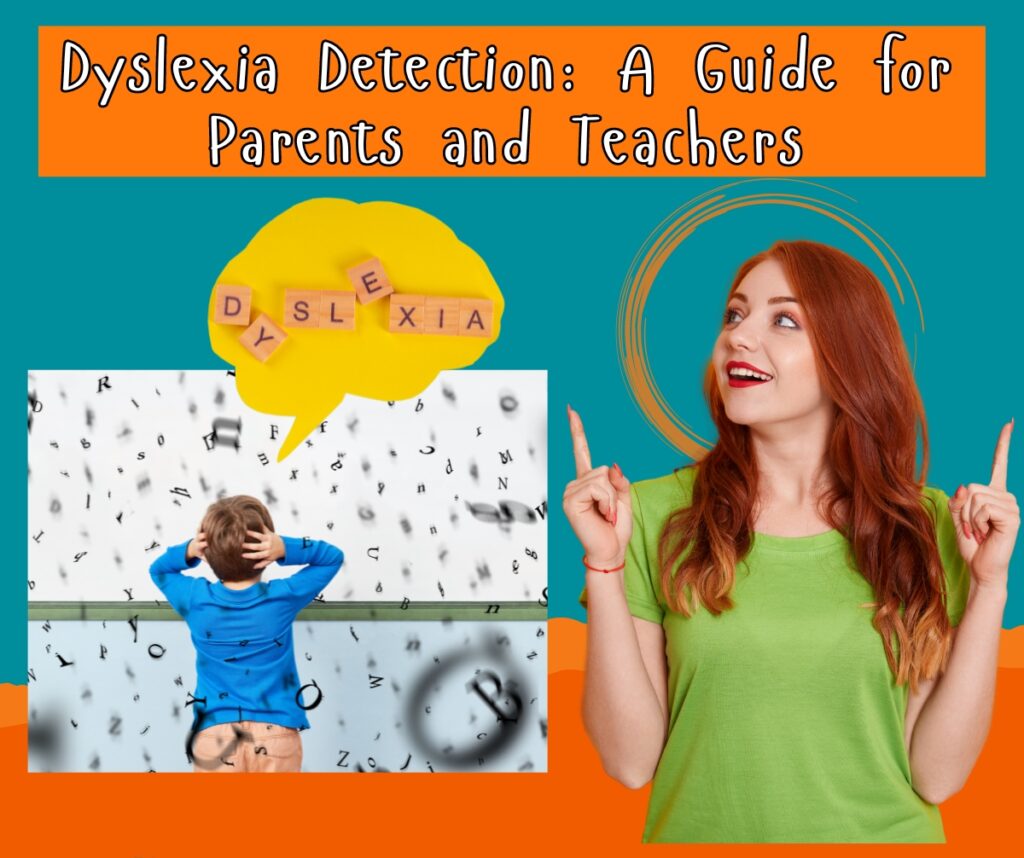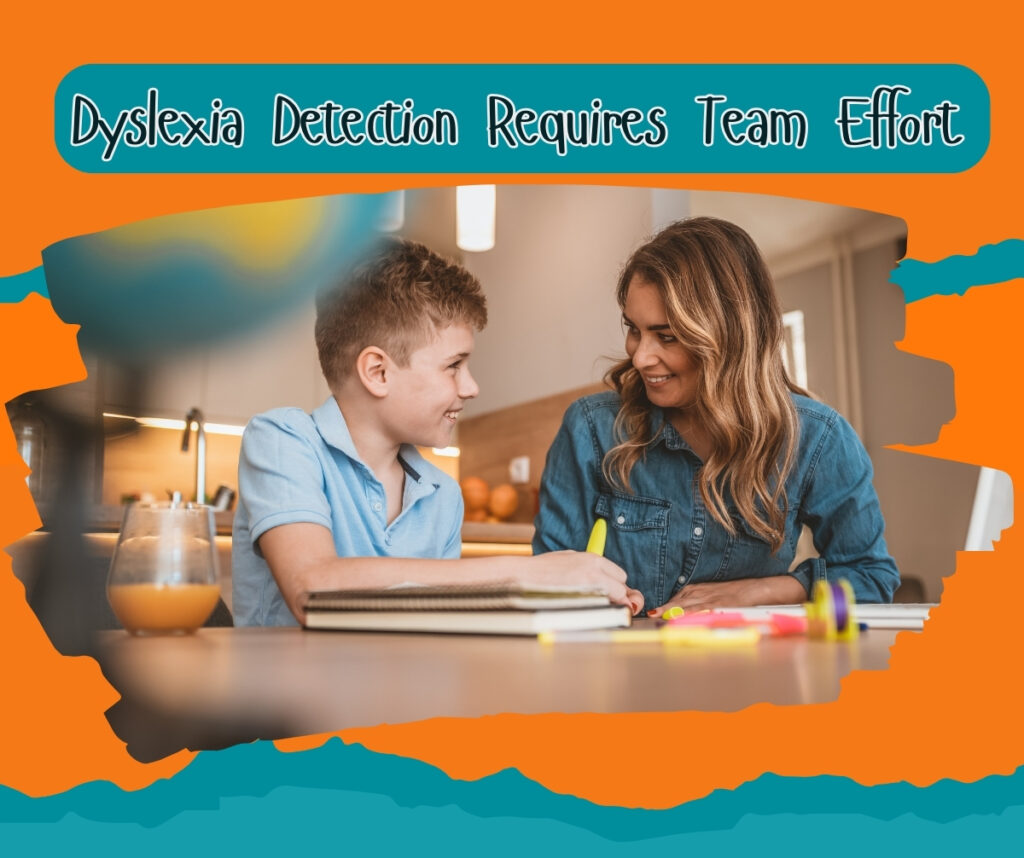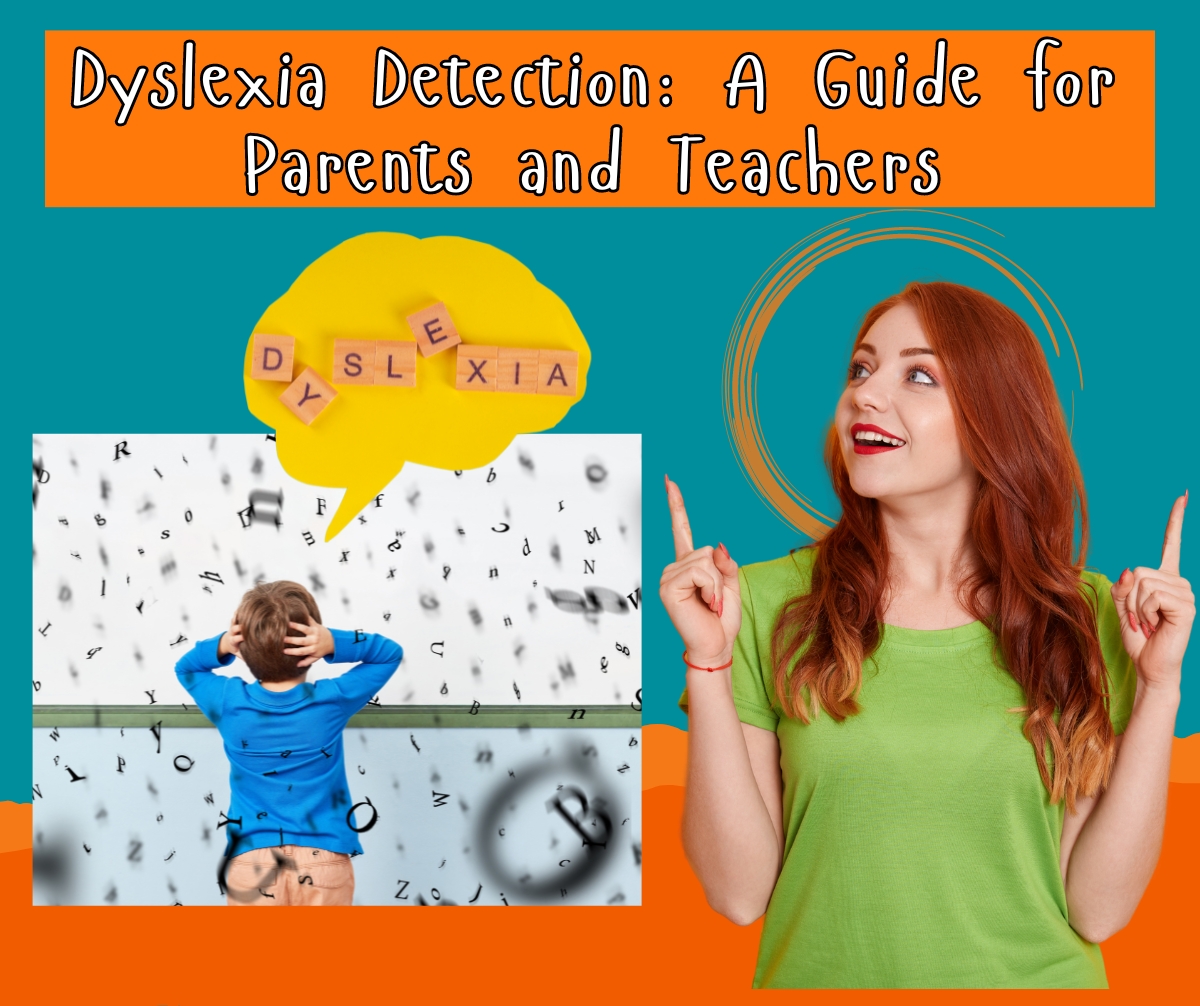Have you ever puzzled over why some kids mix up letters like ‘b’ and ‘d’, or why they find reading a simple sentence as tricky as solving a big jigsaw puzzle?
Well, that could be dyslexia at play and dyslexia detection is crucial. Dyslexia is more than just mixing up letters. It’s a complex language-based learning disability, affects reading, writing, and spelling.
Yet, with a sprinkle of understanding and the right kind of help, kids with dyslexia can not only keep up but also dance to their own rhythm of success.

Tips for Dyslexia Detection in Young Learners
But hey, here’s the good news: with early detection and the right support, kids with dyslexia can thrive academically and personally. Let’s dive into what parents and teachers need to know.
- Early Signs: What to Look Out For
- Have you ever noticed a child struggling to read simple words or getting frustrated with spelling?
- These could be early signs of dyslexia.
- Children might also have trouble following sequences or misunderstanding words.
- Keeping an eye out for these signs is key.
- The Importance of Early Detection
- Catching dyslexia early can make a world of difference.
- It allows for timely intervention, which can help children develop coping strategies and build confidence.
- Parents and teachers, your role here is crucial!
- Assessment and Diagnosis: The First Steps
- If you suspect dyslexia, the first step is to get a professional assessment.
- This usually involves a series of tests that look at reading, language, and spelling skills.
- Remember, a diagnosis is not a label; it’s the first step towards getting the right support.
- Support Strategies in School
- Schools play a huge role in supporting children with dyslexia.
- This might include individualized education plans (IEPs), reading interventions, or assistive technology.
- Teachers, your understanding and support can make a huge difference in a child’s education journey.
- Empowering Children with Dyslexia
- Finally, it’s essential to empower kids with dyslexia.
- Celebrate their strengths, encourage their interests, and always remind them that dyslexia doesn’t define their intelligence or potential.
- With the right support, they can achieve great things.
Remember, dyslexia detection is a team effort. Parents, teachers, and professionals working together can create a supportive environment for children to flourish.

So, what’s the game plan? Team up, spread the word, and transform dyslexia detection into a mission. Parents, teachers, and brain wizards (aka professionals) unite! Let’s create a world where every kid, dyslexia or not, gets to show off their unique superpowers.
And before we roll the credits, remember this: knowledge is power. Sharing what you’ve learned today can light up someone else’s path. If you’ve nodded along, found a nugget of wisdom, or simply enjoyed the ride, pass it on. Together, we can make the journey a little brighter for everyone.
Feeling inspired? Ready to make a difference? Dive deeper into the world of dyslexia support with a visit to the International Dyslexia Association. Let’s join hands and help these incredible kids soar to new heights!
So, let’s spread awareness, provide the necessary support, and watch these incredible kids soar! For more information on dyslexia support, visit the International Dyslexia Association.
And that’s a wrap! Hopefully, you’ve gained some valuable insights into dyslexia detection. If you found this helpful, don’t forget to share it with others who might benefit. Let’s make a positive impact together!



